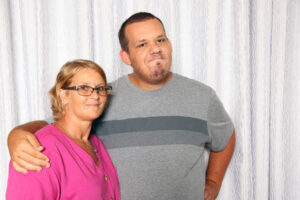
The list of licensed professionals who either work directly with children and adults with autism spectrum disorder (ASD) or who have frequent contact with this demographic continues to grow as autism diagnosis rates continue to climb and more individuals than ever qualify for services and support related to ASD.
Understanding what autism is and isn’t, what to expect from those with ASD, and how to interact with individuals who have this lifelong developmental disability may very well be an important aspect of your career as a school psychologist, special education teacher, speech language pathologist, occupational therapist, principal, administrator, physician, clinical social worker, physical therapist, occupational therapist, dentist, nurse, or behavior specialist (to name just a few).
Certified autism specialist jobs are widely available in the ASD treatment community, and salaries among autism specialists are impressive.
So what is “autism certified,” exactly? Being autism certified can mean you hold the industry-leading Autism Certificate (AC) or Certified Autism Specialist (CAS) credential, both of which are offered by IBCCES. Both require similar training hours, but the CAS we’ll be discussing here requires more in the way of formal education and experience.
Learn more about the CAS designation, and if learning how to become one is right for you and your career:
Professionals with the Certified Autism Specialists credential are nationally recognized for having had the education, post-degree training, and passing exam scores to be counted among the true experts in the field of ASD treatment.
If you want to demonstrate to your patients and colleagues that you’ve gone the extra mile to become well-versed in ASD and are committed to promoting a higher standard of care for your patients/students/clients with ASD and their families, then it’s a good idea to become autism certified.
If you’re committed to making a serious career out of working with people with ASD of any age, then you’re the perfect candidate for the International Board of Credentialing and Continuing Education Standards’ (IBCCES) Certified Autism Specialist (CAS) designation.
This multi-disciplinary, comprehensive training program leads to an internationally recognized credential that demonstrates that you’re current on best practices in the field and capable of incorporating your knowledge of ASD in your professional practice.
As is typical of relatively new professions in emerging practice areas like applied behavior analysis, you won’t find official data from government sources like the Bureau of Labor Statistics on what autism specialists earn. The fact is, those sources haven’t caught up yet and don’t have independent categories for these kinds of fields and specific designations. Instead, they lump them in with much broader fields like psychology.
But going to job boards can get you close to an accurate answer to the question: How much do autism specialists make? For example, as of July 2021, ZipRecruiter shows the national average salary for autism specialists to be $52,674, which works out to $28 per hour.

The certified autism specialist designation is reserved specifically for professionals who provide support and/or services to individuals with ASD, and the services they provide are directly related to their scope of practice. It’s an excellent addition to your resume and a clear indication to your patients/clients and colleagues that you are dedicated to improving your quality of care for those with ASD.
So how do you become an autism specialist? Well, you earn a qualifying bachelor’s or higher degree, take 14 contact hours of training, submit your application and then pass the autism competency exam.